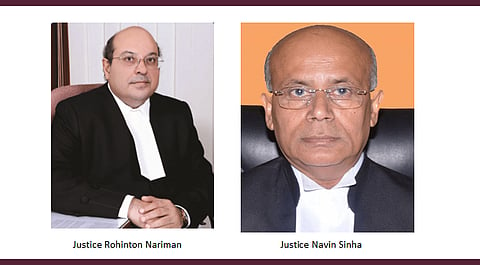
- News
- Columns
- Interviews
- Law Firms
- Apprentice Lawyer
- Legal Jobs
- हिंदी
- ಕನ್ನಡ

In a judgment rendered this week, the Supreme Court has effectively held that action cannot be taken against hotels and restaurants for charging prices in excess of the Maximum Retail Price (MRP) for mineral water in their establishments.